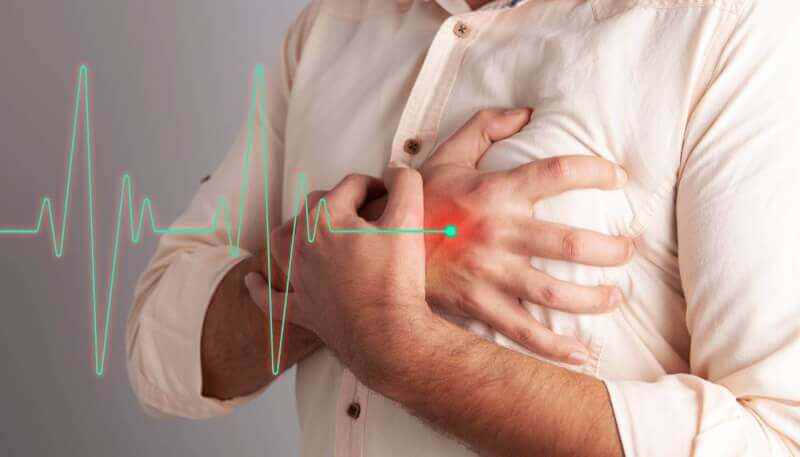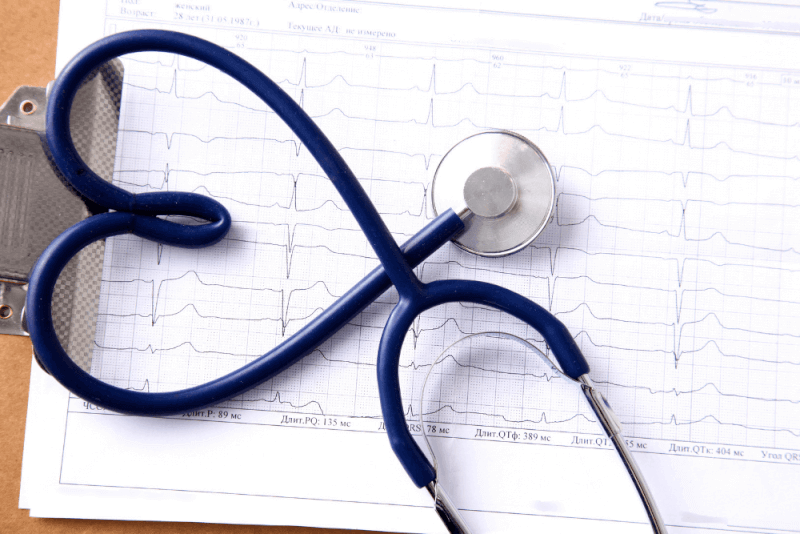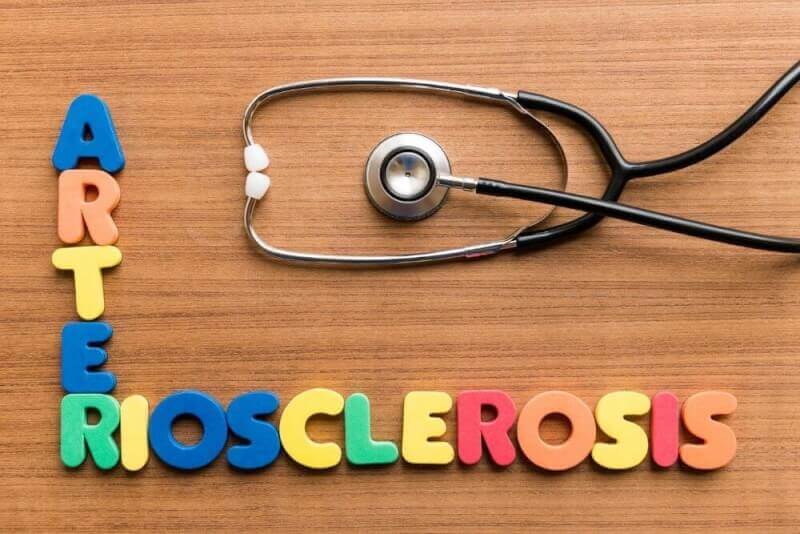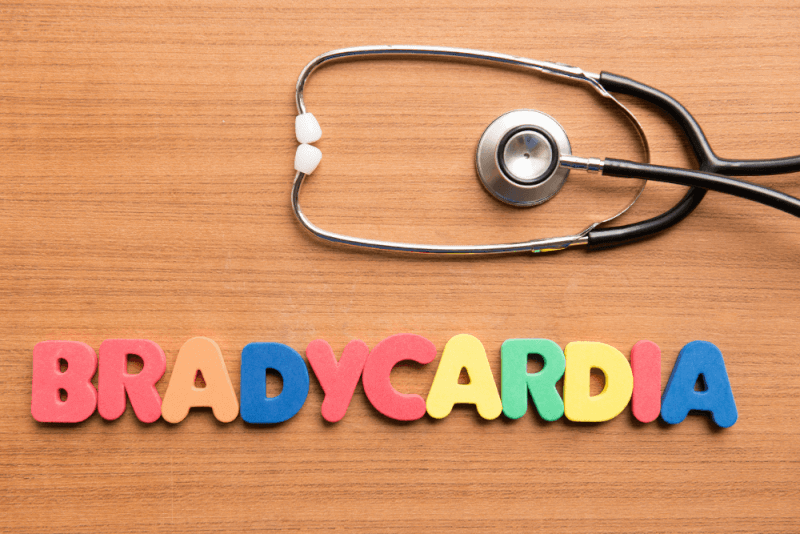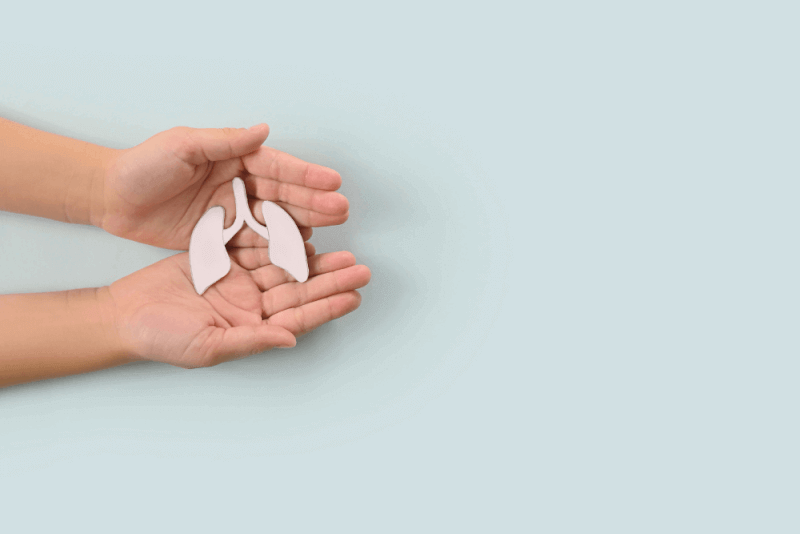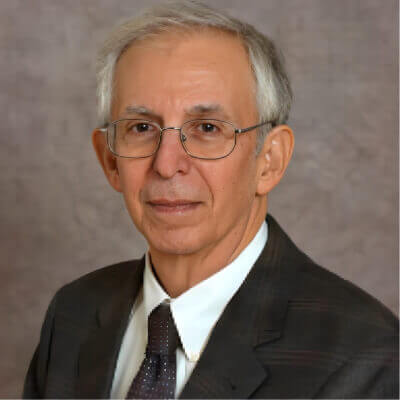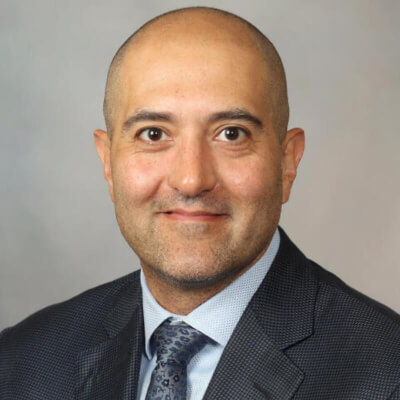What is Heart Spasm?
Heart spasm is when the arteries of your heart (coronary arteries) narrow and contract. These spasms usually do not last long. You may not even notice short-term contractions. But it can increase your risk of heart attack and other heart complications. Your coronary arteries are the blood vessels that supply blood to the heart muscle. When these vessels narrow, they briefly reduce or cancel the blood flow to the heart muscle. Heart spasms can cause serious problems, such as heart attacks, and can even be fatal.
Diagnosis of Heart Spasm
To diagnose heart spasm, the person's previous health problems and symptoms are first identified. A physical examination is then carried out and the person's blood pressure, pulse and respiration are measured to determine whether there is a spasm. Some tests are used to diagnose heart spasm. It measures and checks the electrical signals of your heart with a test called an ECG. An echocardiogram uses sound waves to take a picture of your heart. With coronary angiography, a special dye and imaging scans are used to see how blood travels through the heart vessels.
Symptoms of heart spasm
Although the symptoms seen during heart spasm vary, the most common symptoms include the following.
- Suddenly feeling weak
- Sweating
- Shortness of breath
- Palpitations
- Changes in heart rhythm
- Mild chest pain
- If it occurs at rest, pain on the left side of the chest can cause awakening from sleep.
The characteristic symptom of heart spasm is chest pain. The characteristics of this pain include the following.
- Crusher
- Pressurizing
- Constrictor
- Squeezing
- Very severe
- It can spread to the neck, shoulders and back.
The pain caused by heart spasm is only experienced at rest. For this reason, chest pain during exercise or movement is not considered a symptom of heart spasm.
Causes of Heart Spasm
Cardiac spasm occurs mostly in coronary arteries that are hardened due to plaque formation. It can also occur in arteries with plaque deposits. These spasms are caused by muscle tightness. Heart spasms are most common in people who smoke, have high cholesterol or high blood pressure. Alcohol withdrawal, emotional stress, exposure to cold, drugs that cause blood vessels to constrict, and stimulants such as cocaine can also cause heart spasms. Cocaine and smoking can cause serious damage to the arteries. This makes the heart work harder. Heart spasm can also occur without other risk factors and health problems such as heart problems, diabetes, high blood pressure and high cholesterol.
Treatment of Heart Spasm
The aim of heart spasm treatment is to prevent spasms and reduce chest pain and prevent a heart attack. If you have spasms, a medicine called Nitroglycerin can reduce the pain. Your doctor may prescribe different medicines to prevent chest pain. You may need a calcium channel blocker or a long-term medication called nitrate. Cardiac catheterization is a procedure in which a catheter is inserted into the heart vessels. By trying to remove the blockage in the heart vessels, the cause of the heart spasm is eliminated. If the cause of the heart spasm is a problem with the heart valves, the doctor may recommend heart surgery. This surgery repairs damage to the heart valves and dilates the heart vessels. In addition, in order to prevent recurrence of heart spasm, a person should not smoke, eat a healthy and appropriate diet, exercise regularly, try to reduce stress and take the medications prescribed by their doctor regularly.
Stent
A stent is a small metal tube that keeps your artery open to allow better passage of blood through the heart vessels. Your doctor can insert a stent after performing an angioplasty, which pushes aside the plaque build-up in your artery. The stent is permanent and prevents your artery from becoming too narrow again. They look like small fishing nets made of metal instead of organic or fiber. The metal stent keeps your artery open after the angioplasty has pushed plaque build-up into the artery wall. A drug-eluting stent does the same thing as a bare metal stent, but it has medicine on it to help prevent your artery from narrowing again. A stent is used to prevent an artery from becoming too narrow and blocked, so that blood can easily pass through the vessel. You may need a stent if you have had a heart attack or have plaque build-up in your arteries.
Stents make your blood vessels work better by setting aside plaque build-up inside the heart. If you have peripheral arterial disease, neck arterial disease, renal arterial disease, coronary artery disease, there may be a problem of plaque buildup. Stents can also help if you have a blood clot in your leg, arm or pelvis, or an abdominal aortic aneurysm or another type of aneurysm. Stents are not limited to use in blood vessels. They can also help with blockages in the bile ducts, airways or ureters. More than three million stents are implanted worldwide every year.
The stent allows blood to flow better through the arteries. With angioplasty, a heart attack can be stopped. It improves symptoms such as shortness of breath and chest pain. It prevents your arteries from narrowing again. People who have a stent implanted in their heart recover more quickly than people who have coronary bypass surgery.
Bypass
Bypass is surgery to restore blood flow to areas of your heart that are not getting enough blood. This surgery can improve your heart function, especially if you have had a heart attack or are at high risk of having a heart attack. Our heart works non-stop and circulates blood throughout the body. When tissues in the body do not receive enough blood flow, this causes a problem called ischemia. Muscle cells in the heart are sensitive to ischemia and when it is severe, these heart muscle cells begin to die. Bypass surgery treats ischemia by restoring blood flow to the affected heart muscle.
Important reasons for bypass surgery are arterial diseases, including heart attack and coronary artery disease. The conditions that go into coronary heart disease mostly involve narrowing of the arteries in your heart due to the build-up of fatty, wax-like deposits called plaque. As plaque builds up in the heart, the vessels become harder and narrower. In this case, blood clots can form and cause blockages. These blockages can cause a heart attack. Approximately 200,000 bypass operations are performed each year.
Medicine
Depending on the cause and severity of the problem or condition affecting heart health, the cardiologist may initiate medication. Drugs to relax blood vessels, commonly known as sublingual pills, blood thinners to prevent blood clotting, drugs to lower blood pressure and cholesterol-lowering drugs may be used.
Lifestyle Change
Although surgery and operations can improve blood flow, you need to pay attention to diet and regular nutrition for your heart health and to avoid the need for surgery again. It is very important to follow your doctor's instructions to improve your lifestyle, including how much exercise you do for your heart health. Making improvements to your lifestyle can help you avoid further problems in the future.
Your lifestyle habits and actions will have a positive impact on your health and quality of life in both the short and long term. Working on chronic diseases and health problems, regular exercise, maintaining a healthy weight, healthy eating, diet, eliminating smoking, alcohol use and other health-promoting practices are highly effective in improving and preventing diseases. Adopting a healthy lifestyle can prevent 80% of chronic diseases. Following lifestyle advice can save lives.
What to do in case of heart spasm?
In case of suspected heart spasm, patients should consult a doctor as soon as possible. Afterwards, if the necessary examinations are carried out and the diagnosis is confirmed, treatment for the cause of the heart spasm should begin.
The first aid steps that can be taken in case of heart spasm are as follows.
- First of all, the patient's vital signs should be checked.
- The patient should then be calmed and placed in a semi-sitting position.
- If the patient is on medication, it should be given.
- Emergency medical help should be sought as soon as possible.
How long does a heart spasm last?
Heart spasm, which usually occurs at rest, is usually seen between midnight and 8:00 am. Heart spasms may occur more than once during the day. Each episode of spasm lasts between 5 and 30 minutes. Patients may lose consciousness during this time.
What are the risk factors for heart spasm?
The risk factors that apply to heart disease in general also apply to heart spasms. The most common risk factors include the following:
- High blood pressure
- High cholesterol
- Smoking
- Drug use
- Excessive stress
- Exposure to extreme heat or cold
Differences Between Heart Spasm and Heart Attack
Heart attacks and heart spasms are serious health problems, but they are different. A heart attack occurs suddenly and permanently due to the formation of a blockage. This blockage prevents enough blood from reaching the heart muscle, causing damage to the heart muscle. In heart spasm, there is a sudden and temporary narrowing or blockage of the heart vessels. Narrowing and congestion in the heart can prevent enough blood from reaching the heart muscle and thus impair its function.
During a heart attack, a person may suddenly feel weak. Heart palpitations, sweating, shortness of breath, sudden change in heartbeat, change in heart rhythm may occur. In these symptoms, which indicate a serious problem, you should immediately consult a health institution. In the case of a heart spasm, the person may still experience these symptoms and problems, but they may be temporary. These symptoms will disappear once the condition causing the heart spasm has been treated. A heart attack is caused by a clot that blocks a blood vessel. In the case of heart spasm, the cause is not a clot, but a sudden and temporary narrowing of the arteries. In a heart attack, the heart tissue is deprived of nutrition and oxygen. In heart spasm, there is a massive necrosis of the heart tissue, the vessels leading to the heart are blocked at a rate of 50% and the heart does not stop completely.
Can Heart Spasm Kill?
Heart spasms can cause serious health problems, such as heart attacks, and can even be fatal. Symptoms of heart spasm include sudden and sudden weakness, sweating, palpitations and a change in heart rhythm. All of these symptoms are signs that heart spasm is a serious condition. If you have such complaints, you should consult a doctor immediately without delay.


